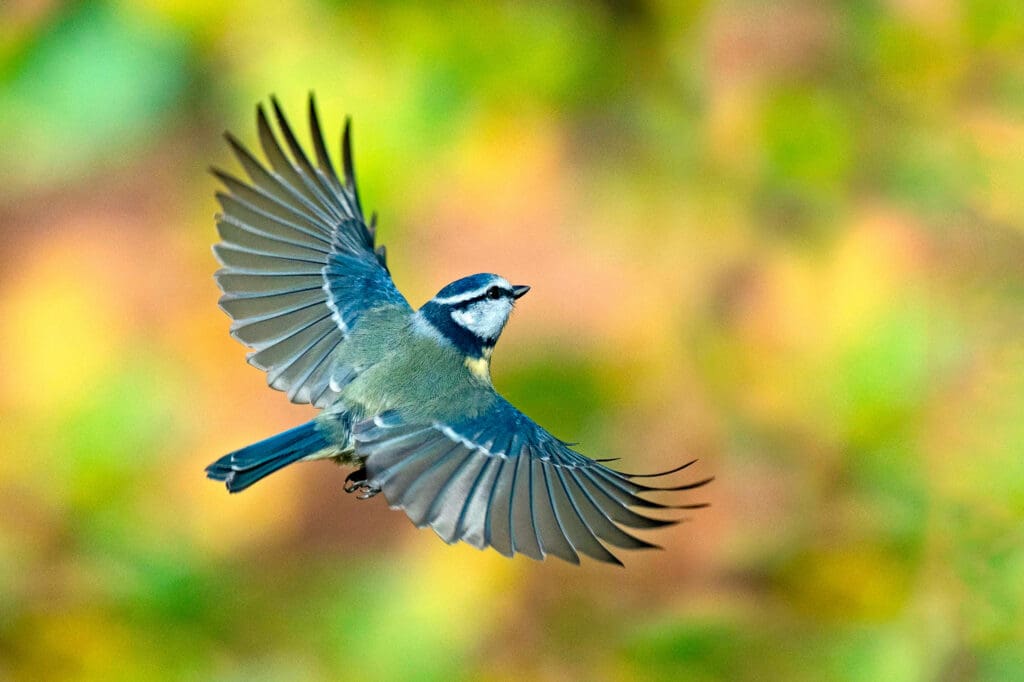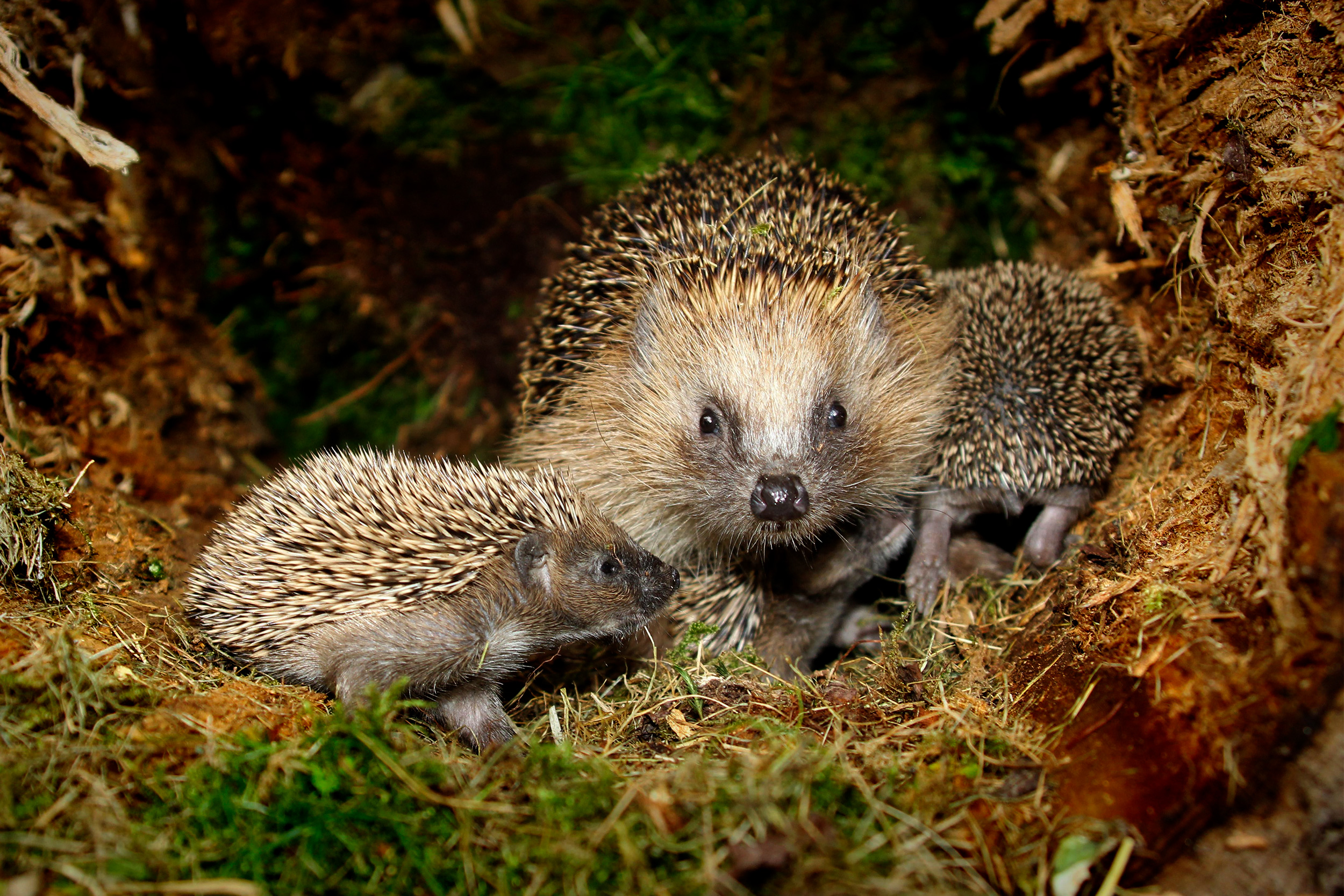Star letter: Home for hoglets
We have three Hedgehog houses, two of which are occupied. The female has produced two autumn babies, which isn’t unusual here, it just means that mum will disappear to hibernate, leaving us to feed the kids! We have done this for several years and have only ever lost one youngster. I am sure that this year’s Hedgehogs are previous years’ babies who have returned to the garden to nest. They certainly know where the food is!
Hazel Smith
Ed: Adding a Hedgehog house to your garden is a simple and very effective way to support the species. You can build your own, or buy a ready-made one from the RSPB Shop.
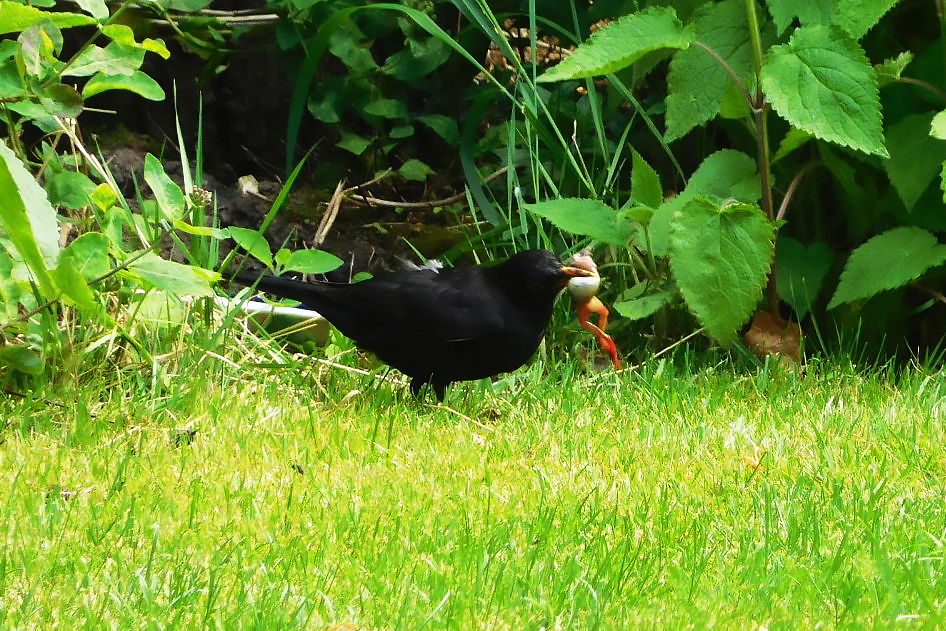
Leslie spotted this Blackbird in her garden with a frog in its mouth! Photo: Leslie Arkless
On the menu
After reading about the unusual behaviour of a Blackbird catching a newt in the latest issue of The RSPB Magazine, I’m sharing a photo of a Blackbird with a frog that it caught in the garden before flying off with it in the direction of a nest in a neighbour’s garden.
Leslie Arkless
Ed: Many of you have written in to report that you’ve also seen Blackbirds catching newts in your gardens, from Claire Wilton in West Sussex to David Perry in North Yorkshire. Rosemary Jackson suggested that the behaviour might be due to hot, dry weather meaning worms were less accessible. Janet and Alan Singleton nicknamed their newt-catching Blackbird Beyoncé as she had been ringed! Nicola Smith and Nigel Arthur have watched their local Blackbirds fishing for tadpoles as well as newts, and Ginny Matthew has seen them tadpole fishing too. Thanks also to B W Mercer, Alison Bell, Tony Teperek, Mark Wall, Nicola Smith, Wendy King, Colin Sumner and Richard Moisey who shared their sightings of this behaviour.
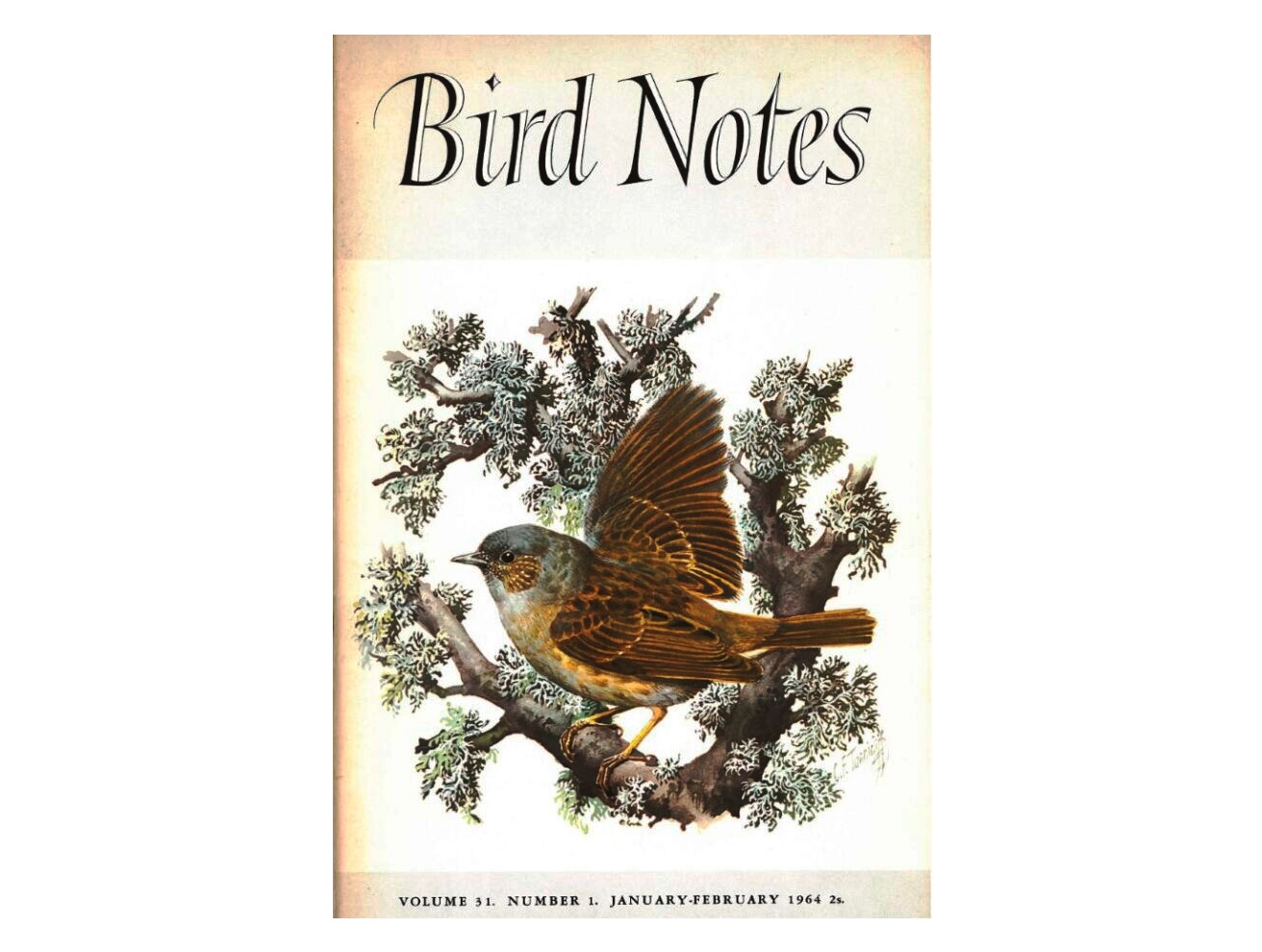
Nigel signed up to the RSPB 60 years ago and he still treasures his copies of Bird Notes, an early predecessor to The RSPB Magazine
In it together
In these difficult times, we all need to feel that we are contributing in some way to ensuring a better world. Each of us, by being a member of the RSPB, is doing our bit towards improving the natural environment worldwide. So, feel good and smile!
I had been working for 10 years before I could afford to join. Now, I have been a member for 60 years. Over the years, when able to do so, I contributed to appeals and projects. I am most fortunate to have been a founding member of two which particularly addressed my concerns: the Flow Country and Hope Farm. Now, please set that aside, for the point I would like to emphasise is that the amount contributed is less important than the real effect we make over time together. You are one of a large army who care about our world. That is something to celebrate and smile about!
Nigel Palk
Bird book mystery
In the 1940s and 50s, Penguin published three volumes of James Fisher’s Bird Recognition, featuring a series of innovative calendar pie charts summarising much information about each bird.
A fourth volume – which would have covered the passerines – was advertised as ‘in preparation’, but as far as I can discover was never published. Fisher died in 1970 and produced many other books, but apparently not Bird Recognition 4. Does anyone know why? The year-cycle charts included were such a useful summary.
Bill Evershed
Farming for the future
Hopefully this is just one of many letters expressing praise and support for your clear declaration that ‘working together’ is how we can rescue nature. Embracing farmers and landowners is an essential part of any endeavour to recover what has been lost over the years – often with the best of intentions to produce affordable food for us all. The damage caused to the environment has been recognised and many farmers have, for some time now, been pursuing schemes to improve the environment on their land. Unfortunately, this has not always been recognised and opportunities to work hand-in-hand with farmers have been passed by. Your clear statement of purpose made in the latest edition of The RSPB Magazine should send a message of direction to all those seeking to bring more life back into the countryside. Work together, give credit for what has already been achieved and build on it.
Brian Chester
Climate heroes
It is so easy to get bogged down in the doom and gloom of climate change, biodiversity loss and the decline in nature here in the UK. As a secondary school science teacher and school sustainability lead, I am hoping to support my students dealing with climate anxiety in any way possible. When your latest magazine arrived, it reminded me just how many people, charities and communities are working so hard, passionately carrying out difficult and laborious tasks in all weathers to do their part to mitigate the climate crisis. From campaigning for policy change in sandeel fishing to tagging Ringed Plovers and helping seabird colonies recover from the catastrophic bird flu pandemic. Thank you for highlighting all these heroes; I hope they realise how important and inspiring their work is. I will certainly be using lots of your articles in my lessons!
Trudie Gorham
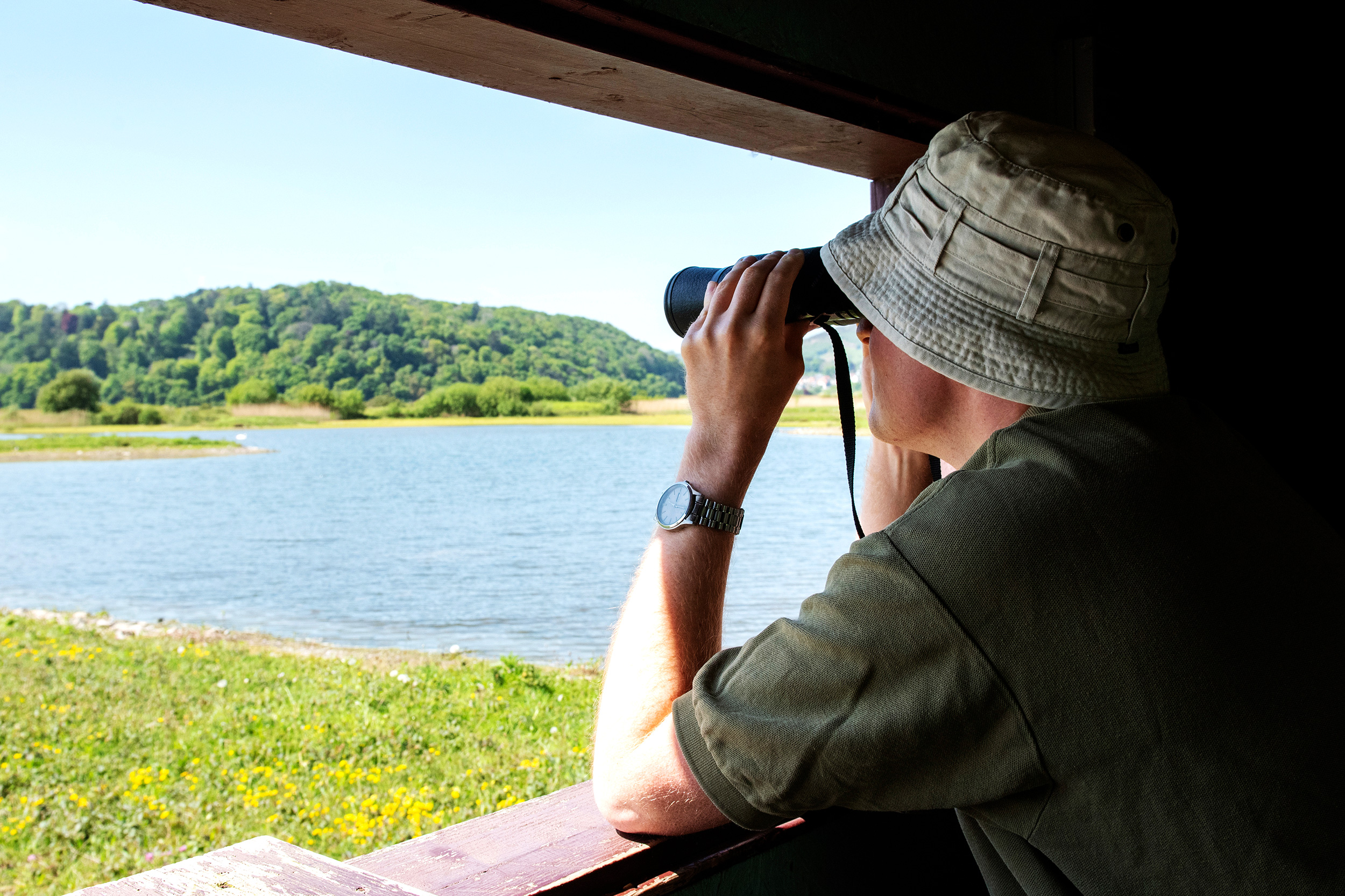
Mike has taken on the challenge of spotting and photographing 100 British birds in a year. Photo: Sara Porter (rspb-images.com)
The year in birds
When I retired over 20 years ago, I joined a walking group of fellow retirees. One of the group had set himself an annual target to spot and photograph 100 British birds in a year. I had little interest in bird spotting, but when he was diagnosed with cancer and sadly died pretty quickly thereafter, I felt compelled to adopt his challenge. I’m so pleased I did, particularly for the interest in nature and birds that it spurned. Spotting is not too bad, but adding the need to photograph as well remains a demanding challenge. I’ve come close to the illusive 100 but not quite made it yet. Anyway, it’s another year now, so off again.
Mike Goodwin
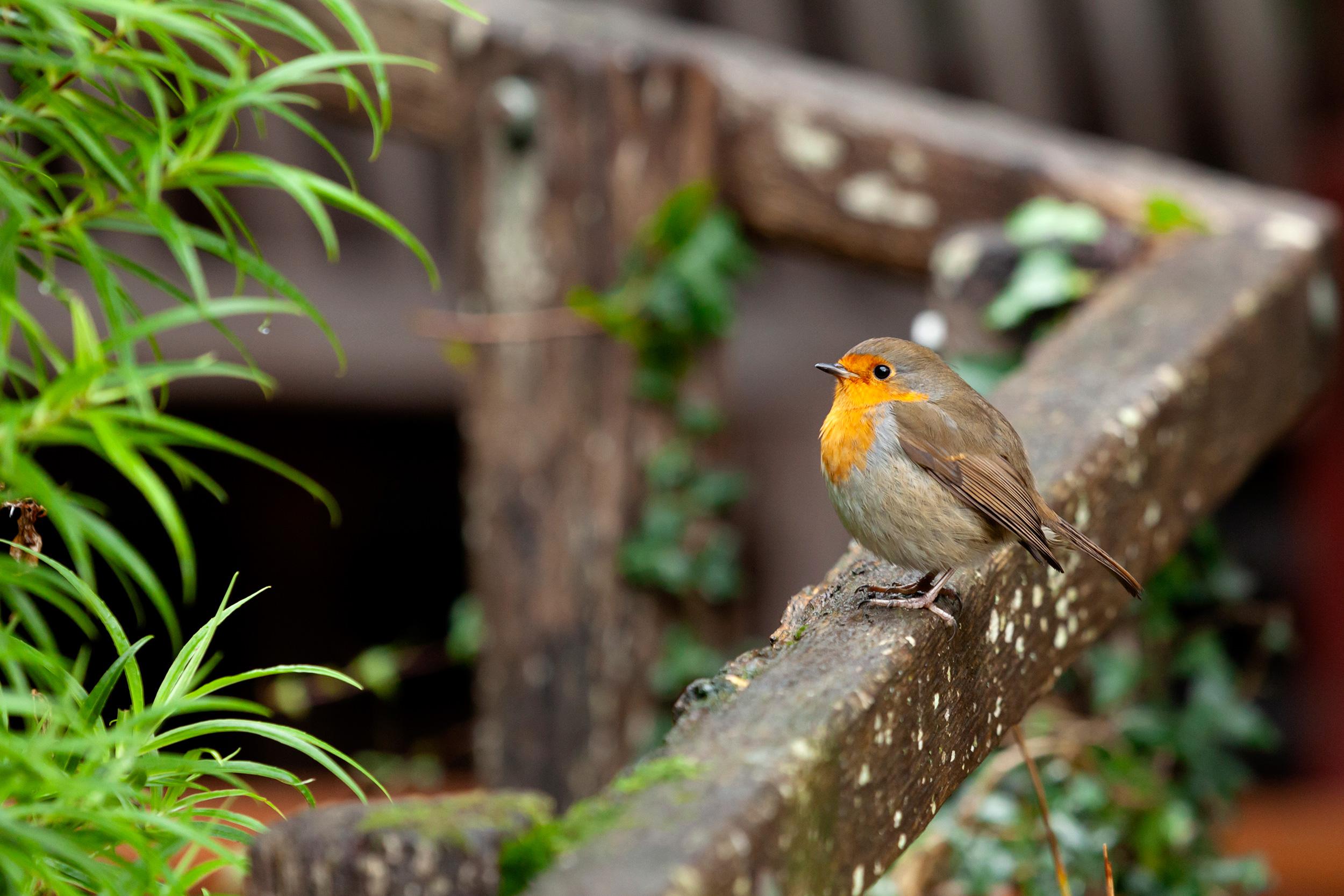
Robin. Photo: Jake Stephen (rspb-images.com)
Getting to know you
Our resident Robin has been regularly visiting us for a year now. In summer she brought her mate who cautiously watched but never got too close. The fledglings also made occasional visits to our pond. They all left in the late summer, but she remained. The Winter/Spring edition of the magazine has enlightened us about the Robin’s behaviour. In early December a mate reappeared. We were surprised to see him so early, but Dominic Couzens said in the last issue that Robins can breed as early as January. We also read in Your Questions how the female has a ‘sharp, monosyllabic call’ to encourage the male to feed her during courtship. Our Robin uses that call to us when she is particularly hungry and wants us to take some notice of her. We had no proof at the beginning of 2023 that this robin was a female, but I think we now have evidence that we are correct. We’re looking forward to next year’s breeding season and wonder whether the male will dare to copy his more assertive mate and get a bit closer to us for some yummy suet bits.
Catherine Heatherington
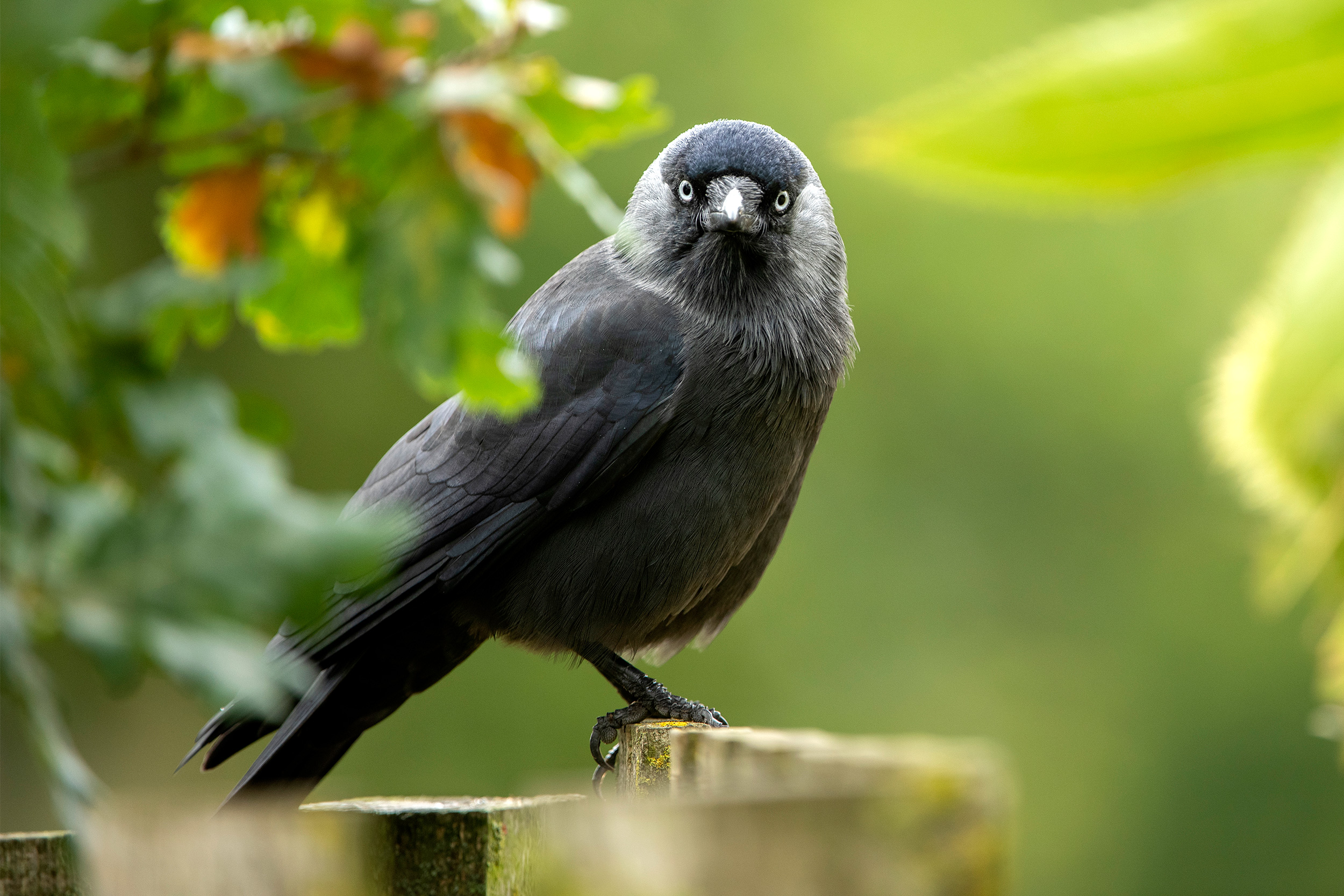
Jackdaw. Photo Ben Andrew (rspb-images.com)
Swinging skills
With reference to the ‘Heated seat’ letter in the Winter/Spring 2024 issue, the Jackdaws that visit my garden have learnt that there is food in the bird feeders. Initially they have tried to copy the smaller birds, but over time they have found that as they swing on the feeders, the contents are scattered on the ground, where the other Jackdaws are waiting to collect the spoils. Clever Jackdaws!
Alan Ketley
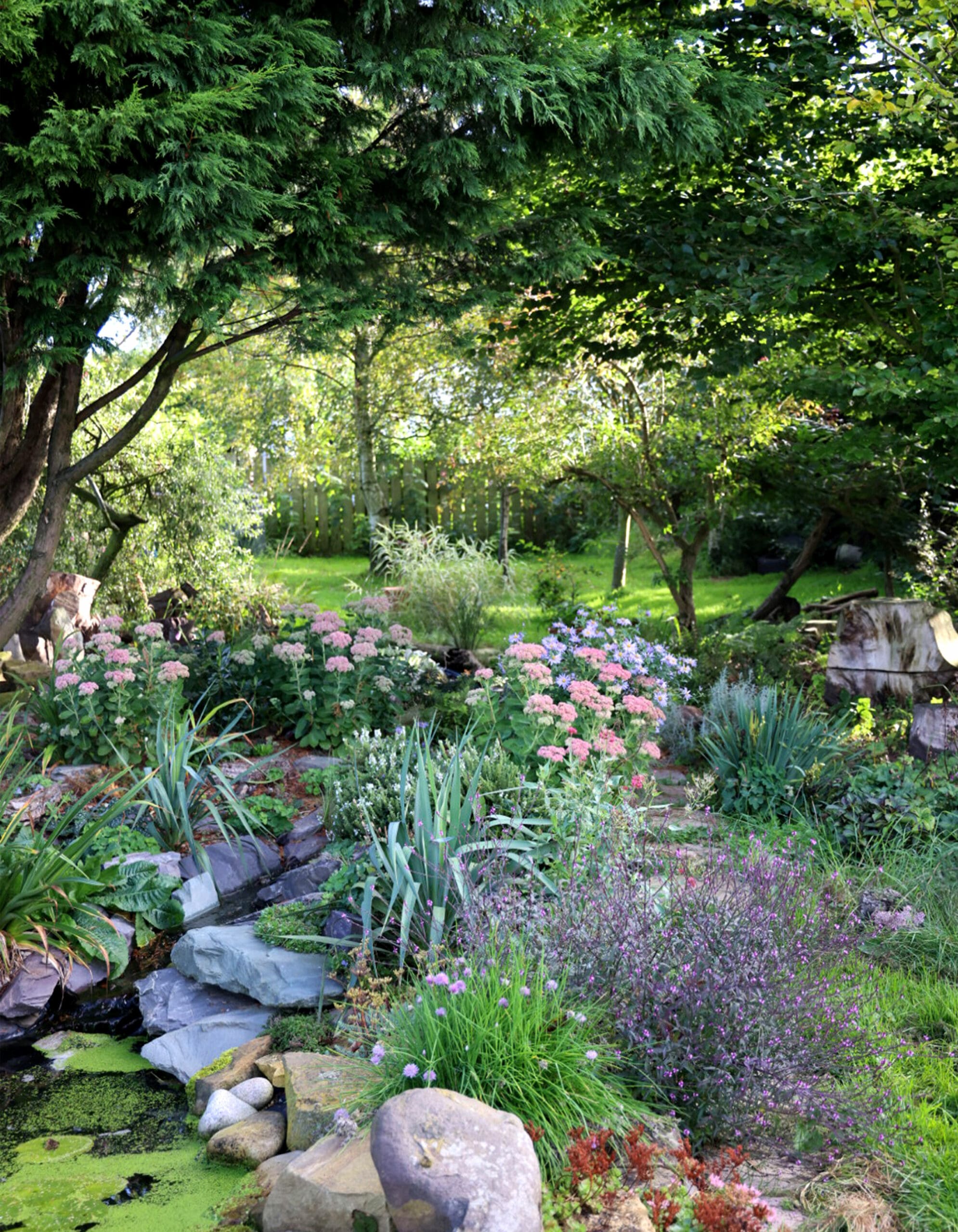
Richard and Ann’s wonderful wildlife garden. Photo: Richard Cowen
A garden with wildlife in mind
We moved to our home just over 40 years ago. After years riding horses, my wife Ann turned her attention more to her garden. She dreamed up rockeries, gravel paths, water features, places for pots and a wooded area. While it was not specifically planted for wildlife, she had wildlife very much in mind.
The garden now is home to many birds, with House and Tree Sparrows visiting every day. In winter, we regularly have Yellowhammers and occasionally Reed Buntings. Greenfinches have come back on a more regular basis, and in late 2023 we even had a Waxwing and a couple of Bramblings visit.
One pond has just about been taken over by all three British species of newt. I even saw a Great Crested Newt on Christmas Day.
I trap moths and have had some unusual species for Durham, including the county’s first Bulrush Veneer. I have also recorded Brimstone butterfly, becoming more common but still rare in this part of the country.
We opened our garden under the National Garden Scheme in 2021 and have done so since. Sadly, my wife died last year, but I am trying to keep her treasured garden going.
Richard Cowen

Have your say
Send us your letters. The star letter wins a pair of RSPB 8×32 Avocet binoculars from our Viking Optical range. Waterproof, nitrogen-filled and robust. Send your letters to RSPBmagazine@rspb.org.uk
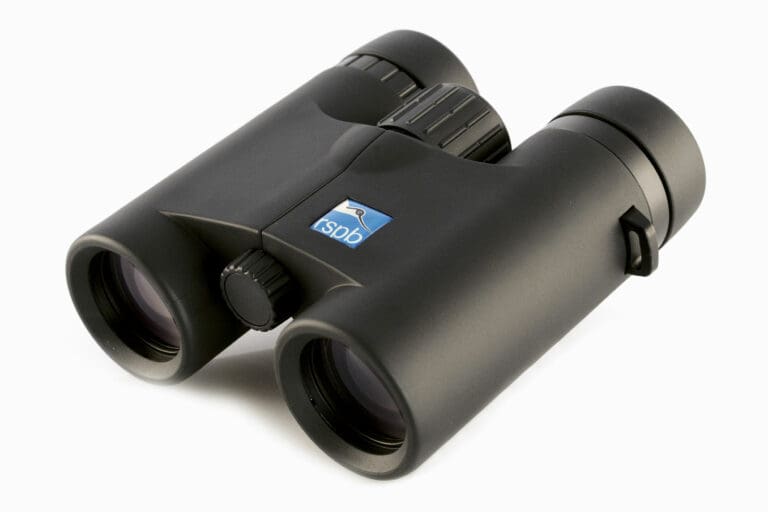
You might also like
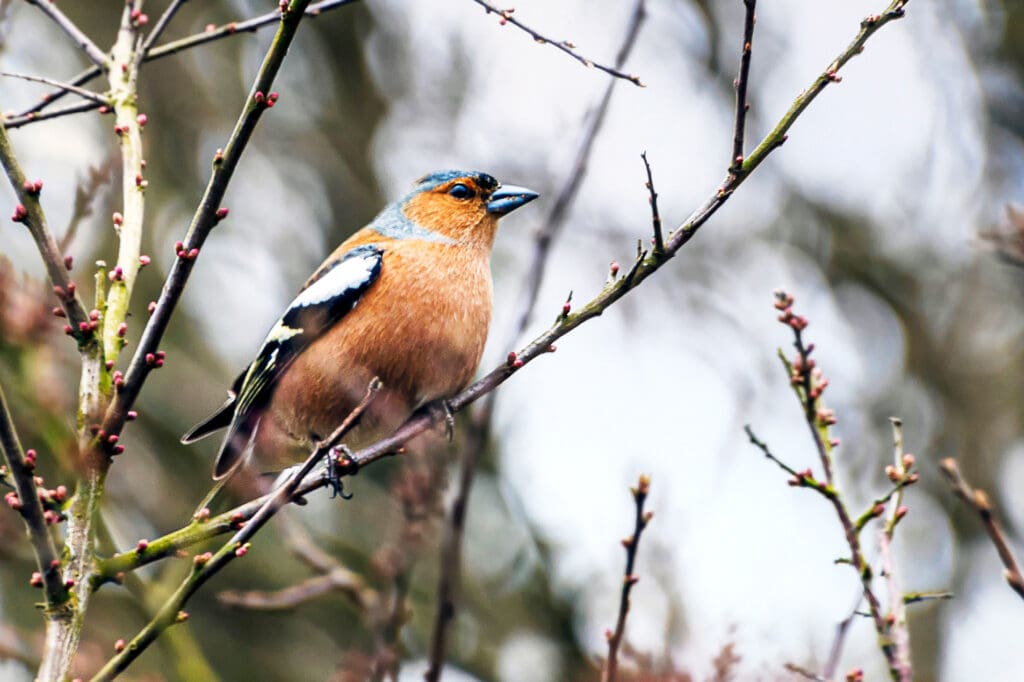
Your questions – spring/summer 2024
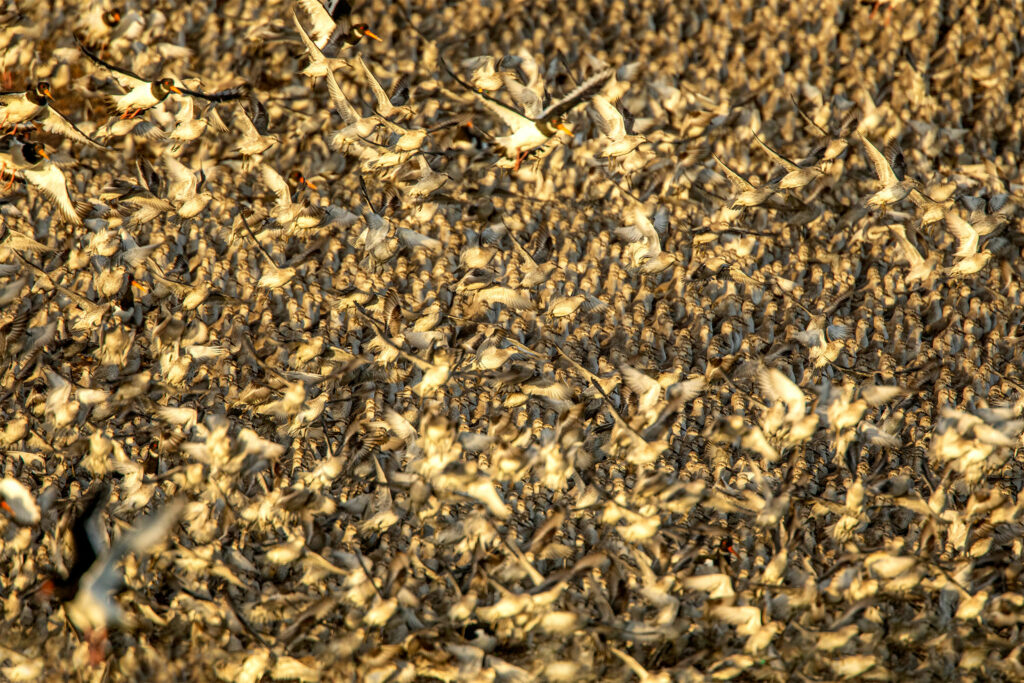
Wildlife in flight
